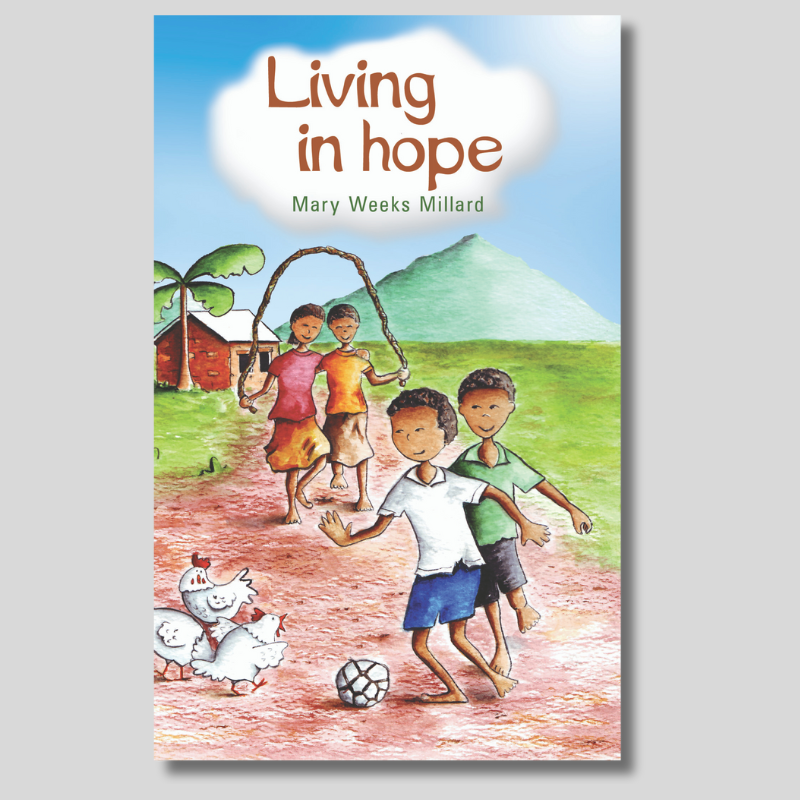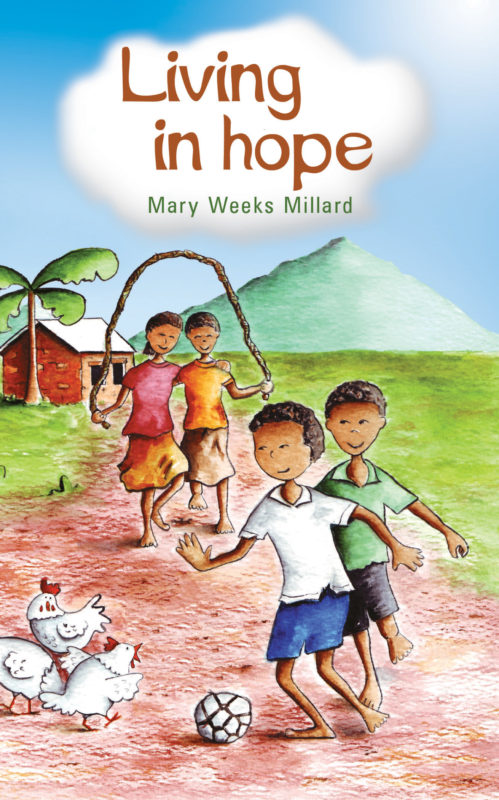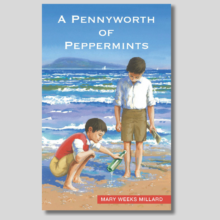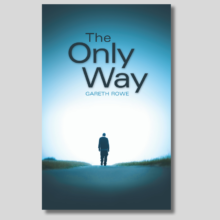Description
This exciting story is great for church and non-church children alike.
Chapter One
Starting School
Shema woke as soon as it was light. He was so excited! Today was the first day of the new school term and he was going to school for the first time in his life, even though he was almost ten years old!
Shema was an orphan. His parents had both been killed in the terrible war which had swept through his country of Rwanda when he was very young. Since then he had lived with his older sister, Ishimwe, who was now twelve, and his younger brother, Maji, who was six. For a long time after the war the children had struggled to survive, living in an old, leaky, mud-brick house and had only just managed to get enough food to eat. Ishimwe had looked after her brothers as well as she could, even though she was only a girl. Instead of going to school, Shema had looked after goats for a neighbour, to earn a little money. But a year ago their lives had changed for the better; they were given a brand new home in a village called “Hope”, which had been built especially for children like themselves, who had no grown-ups to care for them. They were so excited to move into their lovely new home!
There were thirty houses in the village, built in neat rows, each with its own little garden for growing vegetables, and outhouses for cooking and washing. Most of the children who lived there had planted evergreen shrubs around their homes, making the compound look neat and tidy. Some had managed to buy a chicken or a goat, and the shrub hedge helped keep them from wandering away!
There was one larger house in the village, which belonged to the social worker, Delphine, whom the children called “auntie”. The children lived independent lives, but Delphine was always there to help them if they needed anything. She sorted out all the charity money that was sent to pay for their schooling, too. Delphine was a plump, jolly young lady and the children loved her very much.
Ishimwe had learnt to use a sewing machine last year and was now a very good dressmaker. She had sewn Shema a school shirt and shorts in the regulation khaki material which all Rwandan primary schoolboys wear. Shema could hardly wait to wear it on that first day of term! It was on the stool next to his bed, ready for him to put on. First, however, he had to go and fetch the water the family would need for the day. Even this was not such hard work as it used to be in the old house, because the well was so much nearer and it wasn’t such a hilly walk! Cheerfully Shema pulled on his old clothes, picked up the yellow plastic can and ran to the village well. Many other children from the Village of Hope were there too.
“New school year starts today!” he was reminded by one of the big boys of the village. “You’re going today, aren’t you?”
“Yes, I can’t wait!” replied Shema. “I’ve been wanting to go to school for years. I want to study and one day become an airline pilot.”
The other boy laughed. “You will have to be very clever to get a job like that!”
Back at the house Ishimwe was busy making breakfast. Maji was tearing round the house cheerfully as usual. Although he was six now, there was not enough money for him to start school yet; he would have to wait until Delphine could find him a sponsor or Ishimwe could make enough money by selling the clothes she made.
Shema gobbled down his porridge made from ground millet, quickly washed his face and hands and changed into his smart new uniform. Waving goodbye to his brother and sister, he began the long walk down the path which led to his old village where Sam, his best friend, lived. Shema didn’t mind walking a long way! He was so grateful to one of the teachers at the school there, who had become his friend and kindly taught him to read and write.
Sam lived with his mother and her parents. Sam’s father had been killed in the war. His older sister, Grace, went to boarding school in the capital city, Kigali, because there was no senior school in the area. As is the custom, their mother was known by the name of her first child, and so was called “Mama Grace”.
Sam was waiting for Shema to arrive and so was Mama Grace! She knew what a special day this was for Shema and greeted him with a big hug. “How smart you look in your uniform! Wait here a moment, I have a little gift for you.” Mama Grace popped inside her house and came out with an exercise book and a pencil. “Here you are, you will need these!”
Shema squealed with delight. “Thank you so much!” He put the pencil carefully in his pocket and balanced the exercise book on his head, just like Sam.
“Do you know which class you will be in?” asked Sam, as the friends began to walk up the hill to the school.
“Yes,” answered Shema, “I am to try Class Two. I am going to work very hard and catch you up though!”
Sam had been at school for several years now and was about to enter Class Four. In Rwanda you don’t go up into the next class until you have passed an exam to show you have reached the correct standard, so Shema couldn’t start in Class Four with Sam, even though they were the same age.
As they got nearer the school, they were joined by many other children; the boys in their khaki uniforms and the girls in bright blue cotton dresses. Although Shema felt a bit nervous, he thought his heart might burst with happiness at being part of the crowd of laughing, chattering schoolchildren.
The school was a long building, divided into seven classrooms. It was built of mud bricks, but had been nicely whitewashed and gleamed in the morning sun. Each class teacher stood outside their door and welcomed the pupils as they arrived, checking their names against the register. Inside, the classrooms were quite bare; no pictures on the walls, just a blackboard that stretched across the whole of the front wall. The desks were built for two children, but because of numbers, three children had to squeeze in together. They didn’t mind, they were just pleased to be at school!
Shema went to Class Two. The teacher was called Mrs Mugisha, and she greeted him kindly. He was asked to sit in the front row, between a boy called Bosco and a girl called Agnes. They both looked at the newcomer and smiled. As Shema looked around the class, he recognised a few faces from the time when he was a goat herd and brought his flock to graze near the school. Everyone seemed very friendly and Shema felt his nervousness disappear. Mrs Mugisha greeted the class in their native language, Kinyarwanda. They all stood up politely and greeted her back.
“Sit down please,” she said to them with a smile. “Our first lesson today is to learn how to greet in both French and English!” Soon the children were repeating after her, “Bonjour, Madame Mugisha,” and “Good morning, Mrs Mugisha.”. It sounded very strange to Shema, who had not heard either language before. Soon, however, they moved on to maths and reading, which he found much easier, thanks to his teacher friend who had helped him so much. In what seemed like no time at all it was break, and Shema rushed outside to play football with Sam. School was great!
After the break, the headmaster came to the classroom and asked Shema to come with him. Shema began to tremble. Perhaps he wasn’t going to be allowed to stay at school! Perhaps, after all, he might have to start in the first class with all the other new children? The headmaster smiled at Shema kindly. “Don’t worry,” he told him, “we have government rules to keep. Before you enter Class Two you must pass the leaving examination for Class One. I thought you could come and do it now.”
The headmaster led Shema into his office. “Do you have a pencil?” asked the headmaster.
“Yes sir,” answered Shema, taking the beautiful new pencil that Mama Grace had given him out of his pocket. By now Shema had begun to shake again. He had never taken an exam before and didn’t know what to do, but the headmaster sat him down at a little table by the window and smiled kindly. He gave Shema a sheet of paper with lots of writing on it.
“All you do is answer the questions. The way to do it is to read the question twice. When you are sure you understand, tick the right box or write down the answer. When you have finished, there is another piece of paper with maths. Don’t worry, I think you will find it all very easy! I know the Class Four teacher who has been helping you is sure you will do well!”
Shema looked at the paper and in his head he prayed a prayer. “Dear Mister God, please help me do this. Amen.” Once he had started, Shema found he was enjoying doing the exam! He remembered to do what he was told and read through the question twice, thinking carefully before putting the answer down. The headmaster was right, it was quite easy! Soon Shema was doing the maths paper and he liked that. The headmaster was pleased because he finished quickly.
“Well done!” he said to Shema. “Go back to your class now, but come to me just before you go home and I will tell you if you have passed.”
The rest of the day passed quickly. Shema made friends with Bosco and Agnes and played with them and Sam in the lunch break. All too soon it was time to go home. Sam was waiting for him as he came out of the class.
“First I have to go to the headmaster,” Shema explained. “I have to get the result of my exam. I do hope I have passed and can stay in Class Two!”
The headmaster was waiting for him, along the teacher of Class Four who had taught him to read and write. “We are very proud of you, Shema!” the teacher said. “You have done very well in the exam. In fact, you were better than any of last year’s Class One pupils!”
The headmaster nodded. “I am sending the paper to the government office and you are officially in Class Two! Keep on working like this and you will be a credit to our school,” he added.
“I will sir, I really will!” answered Shema. He ran happily out of the office to share the results with Sam.
What a great day his first day at school had been!









Reviews
There are no reviews yet.